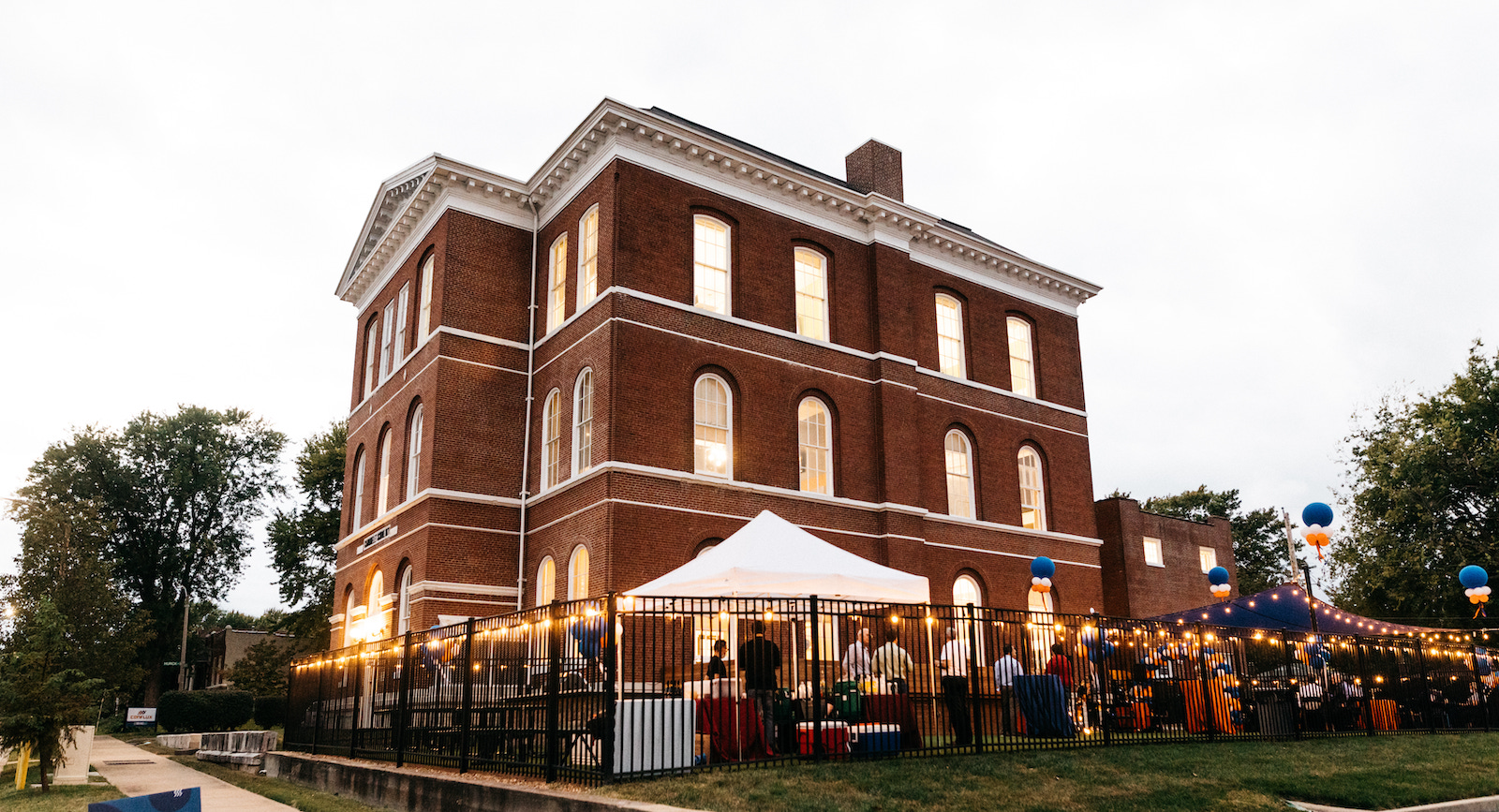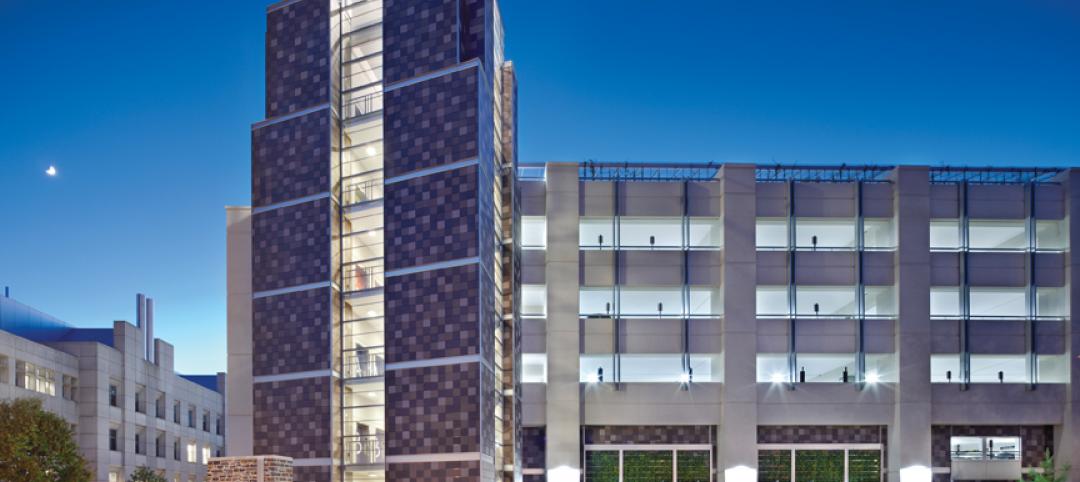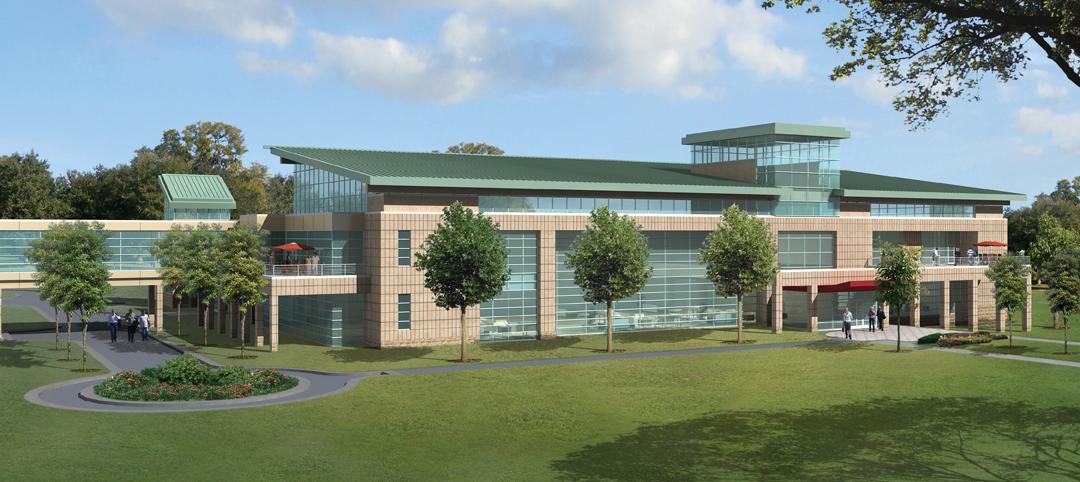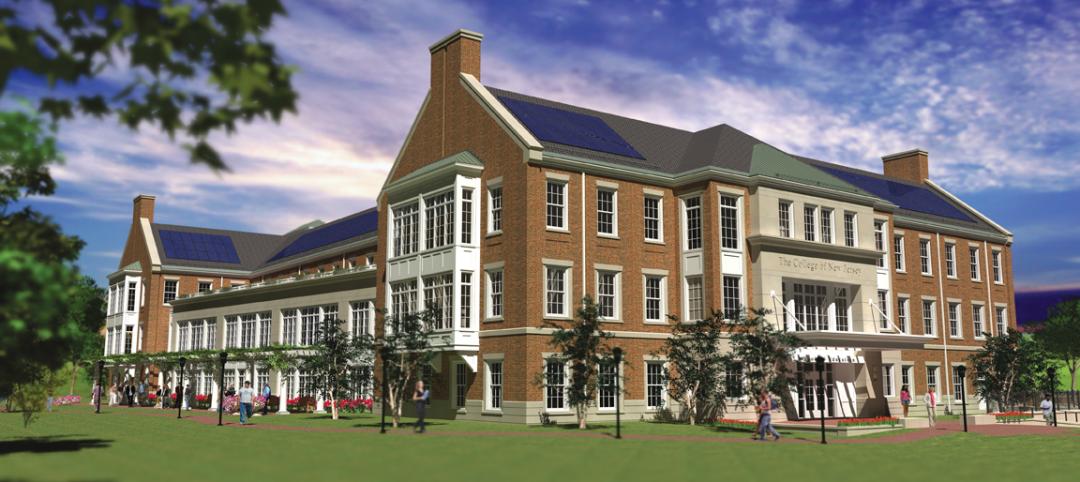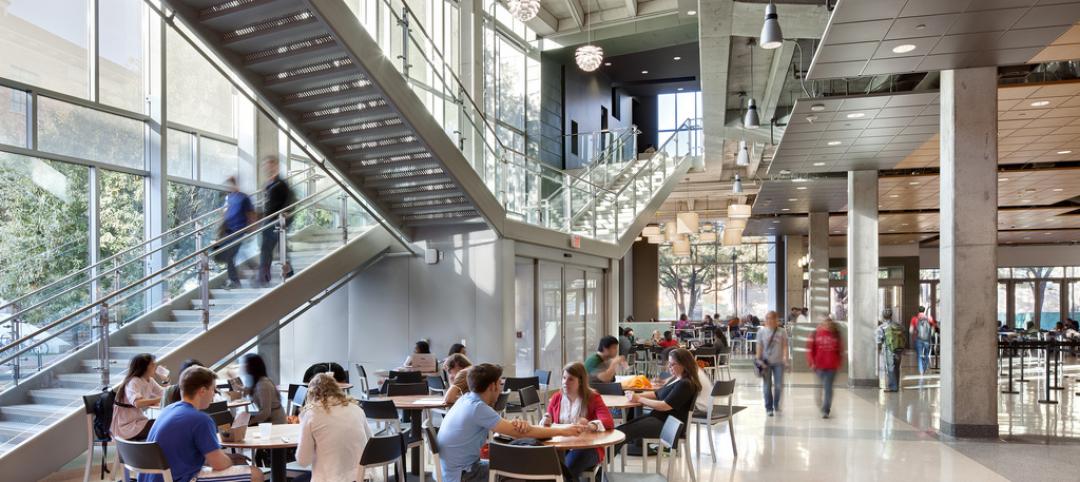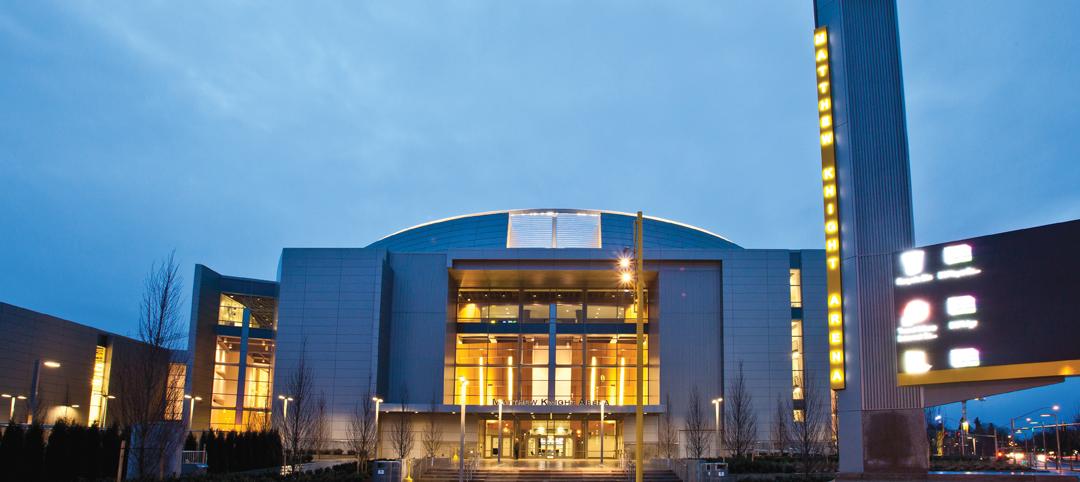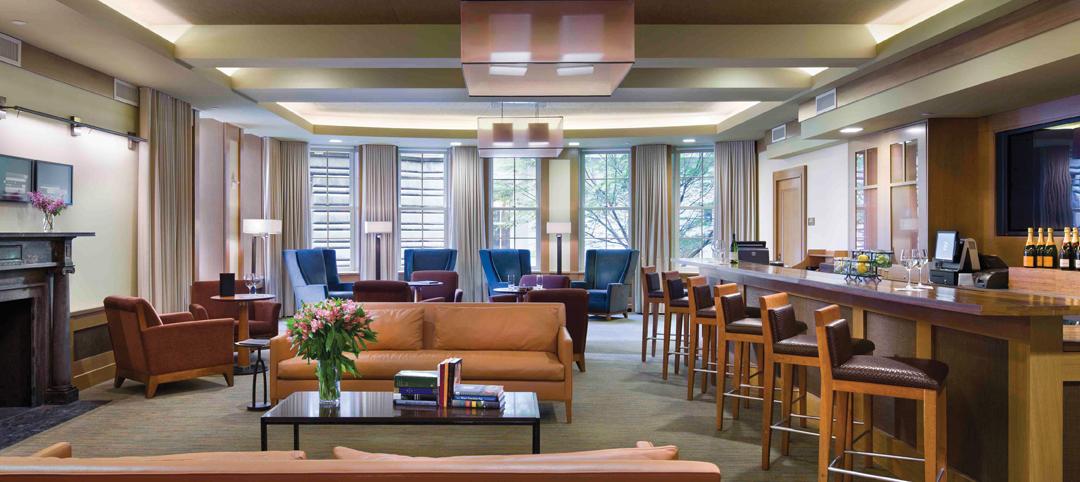In 1871, The Carondelet School, designed by Frederick William Raeder, opened to educate more than 400 children of laborers and manufacturers in St. Louis. It operated for a century before closing in 1976; it subsequently served as a private Christian school before going dark again in the 2000s.
The building is getting a second lease on life, as it has undergone a $2 million renovation by goBRANDgo!, a marketing firm for the manufacturing and industrial sectors, which moved its headquarters from Benton Park, as well as Conflux Co-Learning, goBRANDgo!’s nonprofit incubator, for what’s being called the nation’s first co-learning space where manufacturers and distributors can collaborate and share best practices.
GoBRANDgo! acquired the school in 2019 and launched Conflux a year later, soon after which it started hosting roundtables, webinars, and sharing information. The 26,000-sf Conflux Co-Learning building, with three stories and a basement, officially reopened last November, although some construction had yet to be completed at presstime. Financed with SBA 504 loans for small businesses, the renovation is adding an innovation lab, recording studio, and six teleconference rooms. GoBRANDgo!’s target is for Conflux Co-Learning to have 30 members by the end of 2022, and 100 within the next three years, according to Brandon Dempsey, a Partner with goBRANDgo!.
Right now, Conflux’s educational and collaborative programming is open to the industry. When BD+C spoke with Dempsey in mid-December, Conflux Co-Learning had just conducted a roundtable of 18 manufacturers and distributors on the topic of labor shortages. goBRANDgo! expected to have its first 10 members signed up by February 2022. Membership is $1,000 per month, and is currently confined to midsize companies with annual revenue of between $25 million and $250 million. Dempsey says that because the member companies, by and large, won’t compete, they will be freer to share information about how to drive sales, reduce waste, decrease costs, diversify their customer base, roll out new products, and cope with economic fluctuations.
Conflux Co-Learning also plans a series of guest speakers on a variety of topics relevant to its members’ businesses and growth. The center’s programming is being managed by Matt Menietti, goBRANDgo!’s Executive Director, who most recently served as Director of Innovation & Entrepreneurship for the St. Louis Regional Chamber.
In an interview with Entrepreneur Quarterly, Menietti characterized many of the companies that goBRANDgo! works with as “bedrocks of their communities.” The goal of Conflux Co-Learning, he explained, is “to bring these players together and provide them with meaningful content, relationships, and a community of support to help them thrive.”
Menietti said his organization has had discussions with industry leaders about workforce development. Dempsey elaborates that goBRANDgo! intends to launch an apprenticeship program that members could avail themselves of within the next two years.
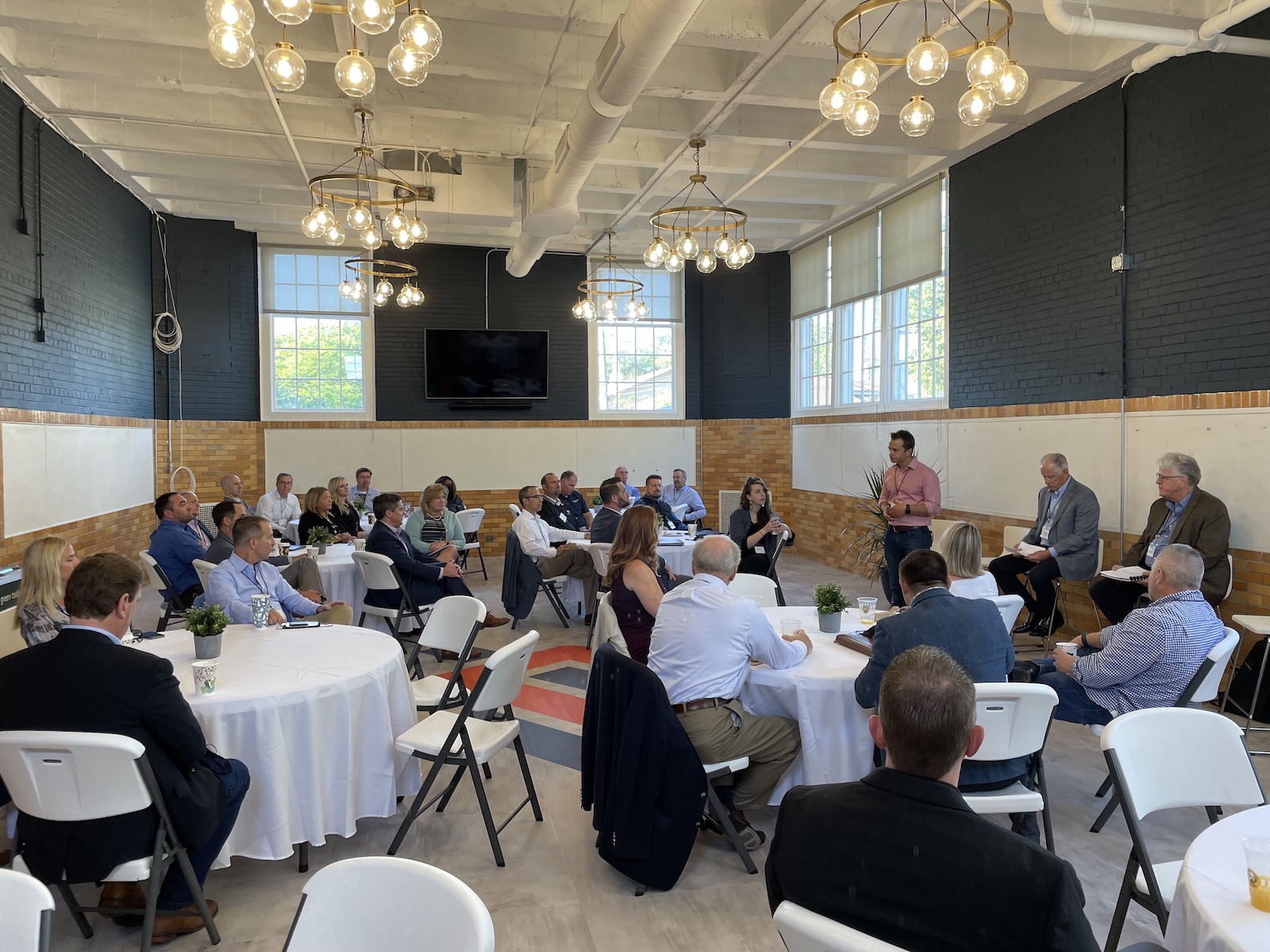
The team that renovated The Carondelet School included Eversoldt & Associates (architect), ReSTL Development (developer and CM), and PAP Engineering (engineer). The scope of the project included repainting the interior and upgrading some of the electrical and HVAC systems. The renovation focused on repurposed and reclaimed materials: Conflux recovered more than 50 tables and chairs from the demolition of the Missouri Botanical Gardens’ Ridgeway Visitor Center, and constructed more tables using reclaimed building materials from that demo.
The biggest part of the renovation, says Dempsey, was removing seven layers of flooring—held down by 650,000 nails, staples, and brads—and restoring the building’s hardwood flooring, more than 2,000 sf of which was built by hand.
Dempsey says he’s getting emails “every day” from companies that want to become Conflux members. The owner of a large, local pasta supplier recently toured Conflux Co-Learning and thought his company could hold its annual meetings there. If Conflux hits 50 members within a reasonable timeframe, Dempsey says he’ll know the concept is working, at which point he would consider expanding Conflux Co-Learning to other manufacturing/distribution hubs like Kansas City, Denver, and Nashville.
Related Stories
| Apr 13, 2011
Duke University parking garage driven to LEED certification
People parking their cars inside the new Research Drive garage at Duke University are making history—they’re utilizing the country’s first freestanding LEED-certified parking structure.
| Apr 12, 2011
Rutgers students offered choice of food and dining facilities
The Livingston Dining Commons at Rutgers University’s Livingston Campus in New Brunswick, N.J., was designed by Biber Partnership, Summit, N.J., to offer three different dining rooms that connect to a central servery.
| Apr 12, 2011
College of New Jersey facility will teach teachers how to teach
The College of New Jersey broke ground on its 79,000-sf School of Education building in Ewing, N.J.
| Mar 23, 2011
After 60 years of student lobbying, new activity center opens at University of Texas
The new Student Activity Center at the University of Texas campus, Austin, is the result of almost 60 years of students lobbying for another dedicated social and cultural center on campus. The 149,000-sf facility is designed to serve as the "campus living room," and should earn a LEED Gold certification, a first for the campus.
| Mar 18, 2011
Universities will compete to build a campus on New York City land
New York City announced that it had received 18 expressions of interest in establishing a research center from universities and corporations around the world. Struggling to compete with Silicon Valley, Boston, and other high-tech hubs, officials charged with developing the city’s economy have identified several city-owned sites that might serve as a home for the research center for applied science and engineering that they hope to establish.
| Mar 15, 2011
What Starbucks taught us about redesigning college campuses
Equating education with a cup of coffee might seem like a stretch, but your choice of college, much like your choice of coffee, says something about the ability of a brand to transform your day. When Perkins + Will was offered the chance to help re-think the learning spaces of Miami Dade College, we started by thinking about how our choice of morning coffee has changed over the years, and how we could apply those lessons to education.
| Mar 11, 2011
University of Oregon scores with new $227 million basketball arena
The University of Oregon’s Matthew Knight Arena opened January 13 with a men’s basketball game against USC where the Ducks beat the Trojans, 68-62. The $227 million arena, which replaces the school’s 84-year-old McArthur Court, has a seating bowl pitched at 36 degrees to replicate the close-to-the-action feel of the smaller arena it replaced, although this new one accommodates 12,364 fans.
| Mar 11, 2011
Historic McKim Mead White facility restored at Columbia University
Faculty House, a 1923 McKim Mead White building on Columbia University’s East Campus, could no longer support the school’s needs, so the historic 38,000-sf building was transformed into a modern faculty dining room, graduate student meeting center, and event space for visiting lecturers, large banquets, and alumni organizations.
| Mar 11, 2011
Texas A&M mixed-use community will focus on green living
HOK, Realty Appreciation, and Texas A&M University are working on the Urban Living Laboratory, a 1.2-million-sf mixed-use project owned by the university. The five-phase, live-work-play project will include offices, retail, multifamily apartments, and two hotels.


